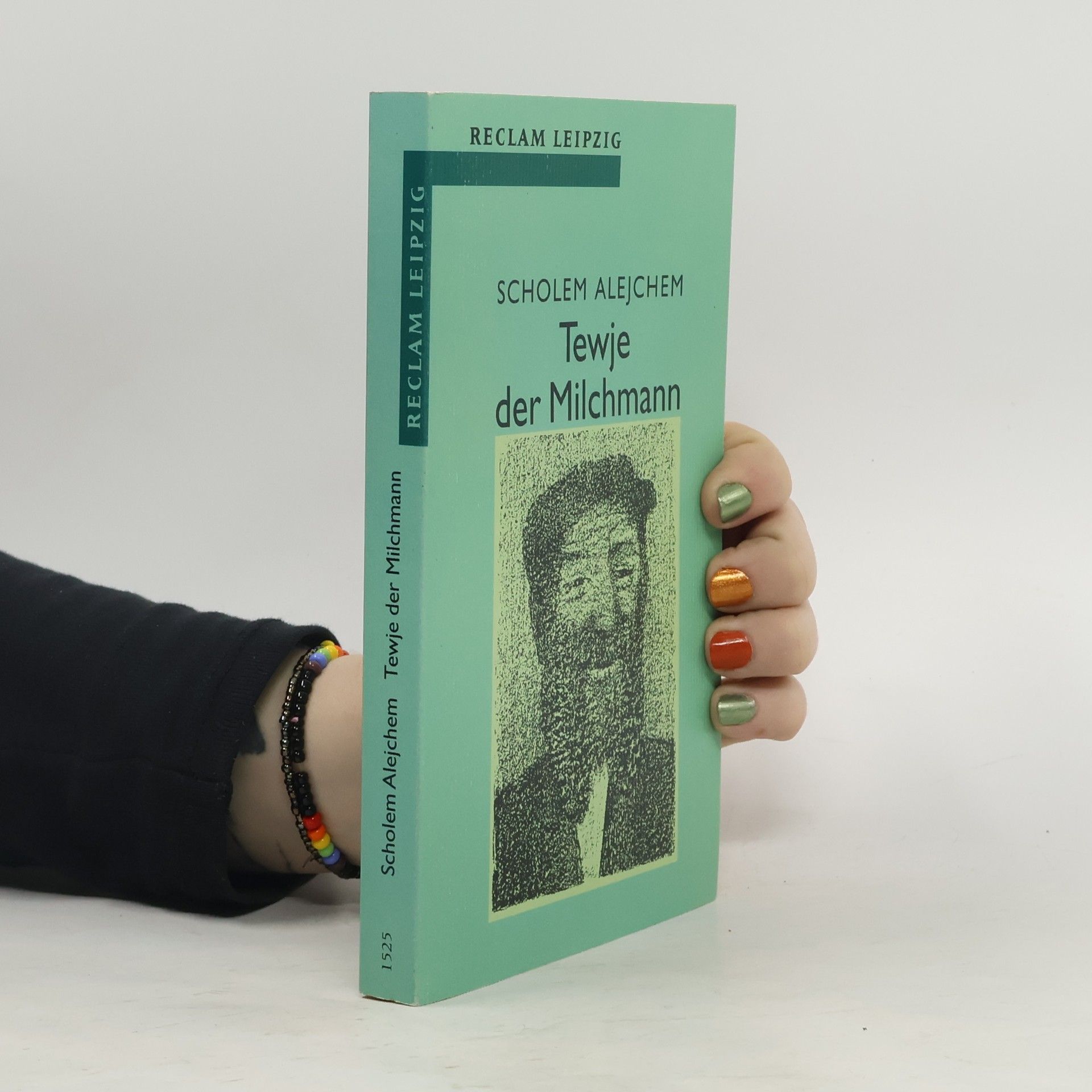Jabotinsky
- 256 Seiten
- 9 Lesestunden
An insightful new biography of the most controversial and perhaps most fervent of all Zionist political figures
Hillel Halkin ist ein amerikanisch-israelischer Übersetzer, Biograf, Literaturkritiker und Romanautor. Seine Arbeit befasst sich mit tiefgründigen Erkundungen der jüdischen Kultur und Geschichte, oft durch sorgfältige literarische Analysen und Kritik. Halkins unverwechselbarer Stil zeichnet sich durch Präzision und Einsicht aus, wobei er komplexe Themen und Ideen in seinen Schriften aufdeckt. Durch seine literarischen Beiträge fördert er das Verständnis und die Wertschätzung des Reichtums der jüdischen Literatur und des Denkens für ein breiteres Lesepublikum.



An insightful new biography of the most controversial and perhaps most fervent of all Zionist political figures
Dieses eBook bietet eine vollständige deutsche Ausgabe der Geschichte, die im Russischen Kaiserreich um 1905 im ukrainischen Schtetl Anatevka spielt. Hier lebt eine jüdische Gemeinschaft, die Traditionen hochhält. Der Milchmann Tevje, mit seiner Frau Golde und fünf Töchtern, kämpft gegen die Armut. Trotz der Bedrohung durch Pogrome im zaristischen Russland bleibt Tevje optimistisch und humorvoll. Anatevka, bekannt als "Der Fiedler auf dem Dach", basiert auf dem jiddischen Roman "Tewje, der Milchmann" von Scholem Alejchem, einem der bedeutendsten jiddischsprachigen Schriftsteller. Alejchem, oft als der jüdische Mark Twain bezeichnet, thematisierte das Leben jüdischer Einwanderer in den USA und schrieb auch Kinderbücher. Er vermittelte dem amerikanischen Publikum das Alltagsleben der Juden in Osteuropa zu Beginn des 20. Jahrhunderts. Ein Zitat aus dem Werk verdeutlicht die Verzweiflung der Menschen: „Ihr redet wie ein Verrückter… Wir haben heute den ganzen Tag außer einem Glas Kaffee und einer Buttersemmel nichts im Munde gehabt…“ Die Erzählung fängt den Kampf um Identität und den Erhalt von Traditionen in schwierigen Zeiten ein.
Elegant and learned, personal and universal, literary, philosophical, and historical-Hillel Halkin's finely wrought essays on themes of Jewish culture and life are an education in themselves.